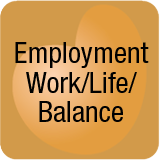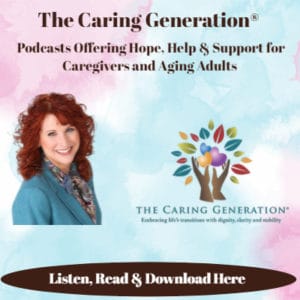Professional Caregiver Health Declines: A Badge of Honor?
 I recently attended a meeting where the presentation topic was being present in the moment. Presence in our personal lives and presence in the work environment. To my surprise, the presenter cited research that nurses feel that they bear a badge of honor to sacrifice their good health and mental well-being to care for others.
I recently attended a meeting where the presentation topic was being present in the moment. Presence in our personal lives and presence in the work environment. To my surprise, the presenter cited research that nurses feel that they bear a badge of honor to sacrifice their good health and mental well-being to care for others.
Nursing Badge of Honor
Being curious, I researched this and discovered one example of this concept in the following. This view that “good nurses” deprive themselves of even the basic necessities of life, such as sleep, to care for their patients, is pervasive within the nursing profession and establishes a dangerous and unhealthy environment for patients and nurses. (Free Library 2014)
Having worked in healthcare and aging since 2000, I have noticed many individuals in the profession who become burned out mentally and emotionally and others whose physical conditions are in a poor state.
To see personal neglect and inattention to health as a badge of honor seems contradictory for those who spend their lives caring for others. This level of caretaking is personally damaging.
The realization that badge of honor mental and health declines may result from purposeful and intentional action is shocking. Martyrdom in caregiving is rampant in the family caregivers that I support. For some reason, I believed that professional caregivers would choose otherwise.
Sacrifices by Professional Caregivers
If you are a professional caregiver:
- How might your thoughts affect the quality of your day-to-day work?
- How might your thoughts be affecting the way in which you care for yourself, your mind, and your body?
- How might your actions be setting a poor example for those for whom you care?
- What choices might you make to change your current situation?
Admittedly, caregiving is a stressful profession. My outlook is different because of my family experience.
At a young age — in my teens — my older family members began dropping out of life in droves. All of my grandparents were dead before I graduated high school.
By this time, several aunts and uncles had also passed away. My mother and father were experiencing their own health issues. The instinct of self-preservation kicked in.
Self-Preservation Instincts
I decided that unless I desired to be extremely unhealthy or even worse –dead — at a very early age, I had no choice but to investigate a healthy lifestyle that included diet, vitamins, and exercise. My instincts of self-preservation remain strong years later as I am fastidious about habits and beliefs to support my self-care.
I recently came across research on this subject. Kesebir (2014) discusses the idea of anxiety related to death.
He states that the self has a way of distorting the way we perceive reality and that self-generated thoughts and feelings are responsible for a great deal of human suffering. He discusses the benefits of humility and relates this quality to an acceptance of death.
Persons with the quality of humility accept the idea of limits in the grand scheme of life, for example, the idea that we are all born and that we will all die. Persons who exhibit humility possess virtues of kindness, respectfulness, gratitude, and mercy.
The Dark Side of Caregiving
On the other hand, individuals with a strong desire for self-esteem, self-importance, and self-protection believe that they are better than others in many aspects. While positive self-esteem can be an admirable quality, in these individuals it represents the dark side.
A place where the self can be psychologically so burdensome at times that the urge to escape takes root in self-destructive actions such as drug and alcohol abuse, binge eating, and even suicide.
This badge of honor includes actions supporting poor self-care and allowing mental and physical health to decline.
There are other individuals who believe that they are invincible and that nothing bad will happen to them. They will never experience poor health and they will never certainly die.
Unfortunately, these ideas are rampant in society today where an increase in self-importance, entitlement, over-competitiveness (having more than someone else) and obsession with appearance have become the norm.
Where is the balance between humility and positive self-esteem that supports good health habits instead of a desire to wear a badge of honor to sacrifice one’s health for others?
We all have been told to find more balance in our lives, yet with all that happens in a single day achieving balance can be difficult, if not impossible. Most of us recognize the law of cause and effect meaning that our actions and words produce our reality.
Yet many people live on the effect side believing that circumstances out of their control dictate their lives. These two aspects represent common challenges in caregiving.
Is there an antidote to a lack of balance and feeling out of control? Yes. Does the antidote require self-examination, self-control, and hard work? Yes. Is the effort worth the price to change?
This is a question that only you can answer by deciding if your health and well-being are worth more than the health and well-being of those for whom you care. Once you make this decision, the work to change habits that do not support your life — life will begin.
Looking for more resources for caregiving families or yourself, check out Pamela’s complimentary online webinar program about caring for elderly loved ones.
Sources:
Badge of honor or recipe for disaster? The importance of adequate sleep for nurses. The Free Library (2014). Retrieved June 14, 2014 from: http://www.thefreelibrary.com/Badge+of+honor+or+recipe+for+disaster%3f_The+Importance+of+adequate a0200506322
Kesebir, P. (2014) A quiet ego quiets death anxiety: humility as an existential anxiety buffer. Journal of Personality and Social Psychology, Vol. 106, No. 4, 610-623. Doi: 10:1037/a0035814.
©2014 Pamela D. Wilson, All Rights Reserved.
Return to Employment/Work/Life/Balance Category ProfessionalReturn to All Category Professionals Page



